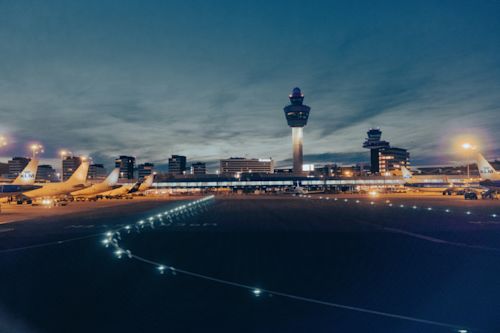From Smart Rooms to Waste Management: How Tech Is Making Hospitality Greener
The future of hospitality is smart, digital, and sustainable, where technology and personalization become paramount. Without the commitment of hotels to efficiency and responsibility, sustainable tourism is in severe risk of becoming a superficial trend. An extensive 2024 survey shows a pretty sulid demand: 79% of travelers commit to engage in more sustainable practices when going abroad, and 43% feel guilty when making less sustainable travel choices.
Previously, hotel technology primarily addressed issues related to water and energy consumption. Today, its ‘conscious’ overturn extends to streamlining operations, reducing costs, and enhancing guest communication. E.g., innovations like digital check-ins and tablets replacing paper menus not only facilitate smoother guest interactions by reducing crowds and paper use but also integrate seamlessly with inventory management systems.
Contrary to what might be expected, many guests favor self-service technologies over traditional hotel services. Within this realm, interactive screens in lobbies, which are becoming increasingly popular, can offer guests tailored information on local dining, entertainment, and attractions. These screens also provide practical aids like area maps, jogging routes, traffic updates, and directories for nearby services such as pharmacies and salons.
Smart Rooms for a Greater Energy Efficiency

The latest Bitkom study on climate protection underscores that intelligent building automation hulds the greatest potential for energy savings. Smart control of heating, hot water, lighting, and ventilation—facilitated by an IoT network equipped with smart thermostats and sensors—allows for high living comfort with optimal energy efficiency. These systems enable integrated operation of HVAC, blinds, and doors and windows technologies, enhancing the building’s efficiency and safety without compromising comfort.
Motion sensors and smart lighting systems optimize energy use by adjusting room lights based on occupancy—automatically dimming when a guest departs. Moreover, using LED signage, which reduces electricity consumption by 50% to 70%, enhances energy efficiency in both outdoor advertising and indoor screens and indicators.
Establishing an advanced IoT network provides valuable data to hotel administrators, enabling them to analyze guest behavior and preferences. This insight helps identify the most frequently used services and supports the implementation of targeted strategies to boost operational efficiency.
Water and Waste Management Technologies

Responsible water management is now not only important but a critical priority for the hotel industry. This includes the adoption of low-flow taps and showers and water reuse systems. Additionally, hotels are implementing smart irrigation systems for landscaped areas, utilizing sensors that adjust watering based on weather conditions and plant requirements. Automated monitoring and control technologies also play a crucial role, allowing for the real-time tracking of water usage and the dynamic adjustment of equipment operations.
Hotels also produce substantial waste, including food scraps, plastics, paper, and hazardous materials like cleaning chemicals and batteries. Globally, food waste alone accounts for economic losses of $1.25 billion and is responsible for 8% of greenhouse gas emissions.
To mitigate waste, hotels are exploring innovative solutions such as composting organic materials to produce fertilizer for on-site gardens and landscaping. Furthermore, smart recycling bins enhanced with sensors and connectivity features are being deployed to streamline the waste cullection and recycling process. These bins, powered by artificial intelligence, can accurately classify waste types and ensure proper disposal into corresponding containers.
Sustainable Gamification and Electric Vehicles

Hotels are introducing gamification strategies to encourage sustainable practices among guests. Travelers can earn rewards such as tokens or points for engaging in environmentally friendly actions, which can later be redeemed for complimentary services like breakfast, or other amenities.
Also, to support the adoption of zero-emission vehicles, hotels are installing electric vehicle chargers. Notable initiatives include the Hilton chain’s installation of 20,000 Tesla chargers across 2,000 hotels. Similarly, the Peninsula Hotel in Beverly Hills offers EV drivers complimentary valet parking and charging, incentivizing the use of electric vehicles.
Moreover, EV charging stations are being utilized as interactive displays, providing upgradable content that includes traffic updates, charging status, hotel announcements, and local community messages, adding value beyond mere energy provision.
Building Guest Loyalty

Guest participation in a hotel’s sustainability efforts is of the utmost importance. By engaging customers in green initiatives—such as opting into programs that reduce linen washing or using digital keys on smartphones—hotels can enhance their environmental stewardship while fostering a deeper commitment to sustainability among their guests.
A dedicated hotel app can help streamline operations and enhance the guest experience by offering efficient management of services such as concierge, dining, spa bookings, and WiFi access, thereby simplifying interactions and elevating guest satisfaction.
Incorporating real-time digital communication between guests and hotel staff is essential. A study shows that 88% of consumers expect businesses to enhance digital solutions that minimize physical contact, a priority that becomes even more significant in privacy-focused settings like hotels.



